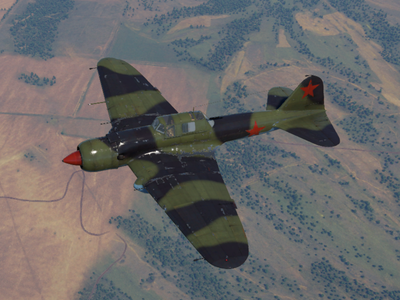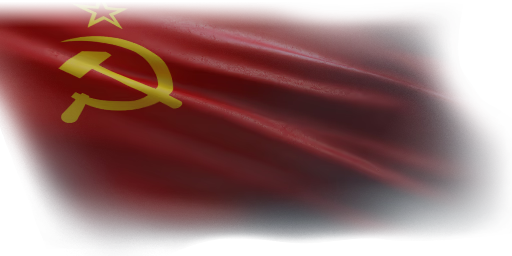
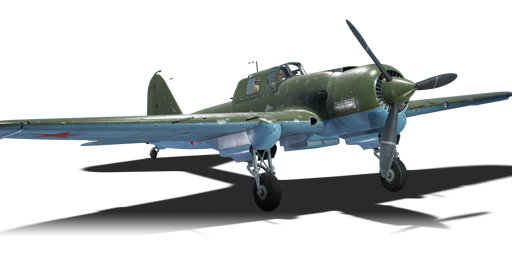
Aviation
IL-2 M-82
II
Rank
AB
2.7
RB
2.7
SB
2.7
Battle rating
USSR
Research country
Strike aircraft
Main role

Premium vehicle
Status
General information
Where to purchase
Camouflages
Flight performance
Max speed
at 2,500 m
397373413381 km/h
Rate of Climb
7.14.210.34.2 m/s
Turn time
22.925.12224.1 s
Max altitude
6,500 m
Takeoff Run
400 m
Landing
flaps
flaps
Take-off
flaps
flaps
Combat
flaps
flaps
Air
brake
brake
General characteristics
Crew
2 persons
Engine
Length
11.4 m
Wingspan
14.6 m
Wing Loading
139 kg/m²
Weight:
Base weight
5.095.254.965.22 t
Fuel in main tanks
0.55 t (1h 8m)
Limits:
Max Speed Limit (IAS)
620 km/h
Mach Number Limit
0.61 M
G limit
≈ -13/13 G
Flap Speed Limit (IAS)
270 km/h
Gear Speed Limit (IAS)
320 km/h
Offensive armament
2 × 20 mm ShVAK cannon
Ammunition
420 rounds
Fire rate
800 shots/min
One-second Burst Mass
1.29 kg
| Belt | Belt filling | Armor penetration (mm) at a distance: | |||||
|---|---|---|---|---|---|---|---|
| 10 m | 100 m | 500 m | 1000 m | 1500 m | 2000 m | ||
| FI-T/AP-I | 28 | 24 | 14 | 7 | 4 | 2 | |
| FI-T/HEF/AP-I/FI-T | 28 | 24 | 14 | 7 | 4 | 2 | |
| HEF/FI-T/AP-I | 28 | 24 | 14 | 7 | 4 | 2 | |
| FI-T | 4 | 4 | 4 | 4 | 4 | 4 | |
| AP-I/FI-T/AP-I/AP-I | 28 | 24 | 14 | 7 | 4 | 2 | |
| AP-I/HEF/HEF/FI | 28 | 24 | 14 | 7 | 4 | 2 | |
2 × 7.62 mm ShKAS machine gun
Ammunition
1,500 rounds
Fire rate
1,800 shots/min
One-second Burst Mass
0.29 kg
| Belt | Belt filling | Armor penetration (mm) at a distance: | |||||
|---|---|---|---|---|---|---|---|
| 10 m | 100 m | 500 m | 1000 m | 1500 m | 2000 m | ||
| T/Ball/Ball/AP-I/AI | 13 | 12 | 7 | 3 | 2 | 0 | |
| AP-I/AI/API-T | 13 | 12 | 7 | 3 | 2 | 0 | |
| AP-I/API-T | 13 | 12 | 7 | 3 | 2 | 0 | |
| AP-I/AP-I/AP-I/AI | 13 | 12 | 7 | 3 | 2 | 0 | |
Defensive armament
Turret — 12.7 mm Berezin UBT machine gun
Ammunition
280 rounds
Fire rate
1,026 shots/min
One-second Burst Mass
0.82 kg
| Belt | Belt filling | Armor penetration (mm) at a distance: | |||||
|---|---|---|---|---|---|---|---|
| 10 m | 100 m | 500 m | 1000 m | 1500 m | 2000 m | ||
| T/AP/AP/IAI | 32 | 30 | 22 | 15 | 11 | 7 | |
| API-T/AP/AP/AP-I(c) | 34 | 32 | 24 | 17 | 12 | 8 | |
| API-T/AP-I | 29 | 27 | 20 | 13 | 9 | 6 | |
Suspended armament
Max weight
625 kg
Wing loading
left / right
Maximum
255 kg
Max. difference
200 kg
| Name | Weight | Slot | ||||||
|---|---|---|---|---|---|---|---|---|
| 2 × | 13.6 kg | 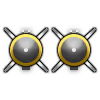 |  | |||||
| 2 × | 30 kg | 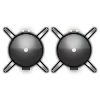 |  | |||||
| 2 × | 47 kg | 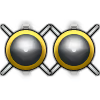 |  | |||||
| 2 × | 83.8 kg |  |  | |||||
| 2 × | 103.2 kg | 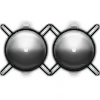 |  | |||||
| 252.2 kg | 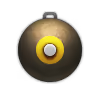 |  | ||||||
| 49.8 kg | 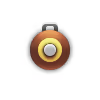 |  | ||||||
| 103.5 kg | 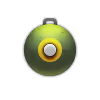 |  | ||||||
| 6 × | 153 kg | 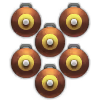 |  | |||||
| 2 × | 99.5 kg | 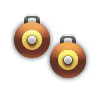 |  | |||||
| 2 × | 207 kg | 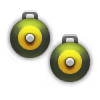 |  | |||||
Economy
Repair cost
AB
623 

RB
1,629 

SB
1,752 

Crew training
10,000 

Experts
115,000 

Aces
500 

Research Aces
640,000 

Reward multiplier
AB / RB / SB
 2 x (70 / 165 / 285) %
2 x (70 / 165 / 285) % 
 2 x 142 %
2 x 142 % 

Premium vehicle
All modifications are unlocked
Flight performance | ||
|---|---|---|
Weaponry | ||
|---|---|---|
Rating by players
You must play more than 3 battles for the last week and more than 10 battles in a vehicle to rate it.
Like:
8
Flight performance:
Not enough ratings
Survivability:
Not enough ratings
Aerial combat:
Not enough ratings
Ground attack:
Not enough ratings
Balance:
Not enough ratings
Tips & Tricks
This space is currently empty
Do you know any interesting vehicle features?
Loading...
No articles about this vehicle yet
Become the first author and get rewards!
Write a guide, tell about interesting historical facts, make a tutorial or simply an interesting post.
No more content
